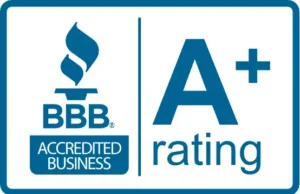Currently, Synchrony offers low monthly payments and many financing options. You can have your home repaired now and pay later with one of Synchrony's six monthly payment programs.
Home elevation has become an increasingly important consideration for residents of Raywood, located in Liberty County, Texas. This small community, situated in the southeastern part of the state, faces unique geographical challenges that make understanding and addressing elevation concerns crucial for homeowners. The area’s proximity to waterways and its position in a region prone to flooding events has made home elevation a critical topic for property protection and safety.
Liberty County’s topography presents specific challenges for residential properties in Raywood. The region’s relatively low elevation and flat terrain, combined with its location near the Trinity River system, create conditions where water drainage and flooding can significantly impact homes. Furthermore, the area’s clay-rich soil composition can lead to foundation settlement issues, making proper elevation assessment essential for long-term structural integrity.
The local climate, characterized by heavy rainfall periods and occasional severe weather events, compounds these elevation concerns. Homeowners in Raywood must consider not only current elevation levels but also potential future risks associated with changing weather patterns and water flow dynamics in Liberty County.
When addressing home elevation issues in Raywood, foundation stability becomes a primary concern. The relationship between proper elevation and foundation performance is particularly significant in this area of Liberty County. Residential foundation specialists understand that elevation problems often manifest as uneven floors, wall cracks, or doors and windows that no longer fit properly in their frames.
Professional assessment of home elevation typically involves comprehensive site evaluation, including soil analysis and drainage pattern assessment. For Raywood residents, these evaluations help determine whether foundation repair, drainage improvements, or other elevation-related solutions are necessary to protect their homes from water damage and structural issues.
Addressing elevation concerns requires specialized expertise and equipment that most homeowners cannot manage independently. Professional foundation companies that focus exclusively on residential services, such as Allied Foundation, provide the technical knowledge and experience necessary to evaluate and address elevation-related problems in Liberty County homes.
These residential specialists understand the unique challenges facing Raywood properties and can recommend appropriate solutions based on local soil conditions, drainage patterns, and elevation requirements. Their focused approach to residential foundation work ensures that homeowners receive targeted solutions designed specifically for the challenges present in this Liberty County community, helping protect their most significant investment while ensuring family safety and comfort.
Proudly Serving Raywood for over 40 years!


